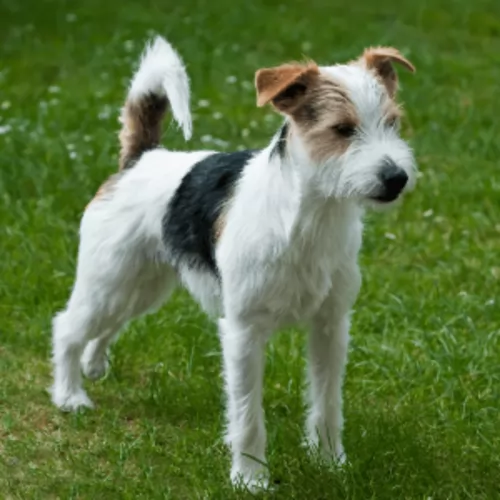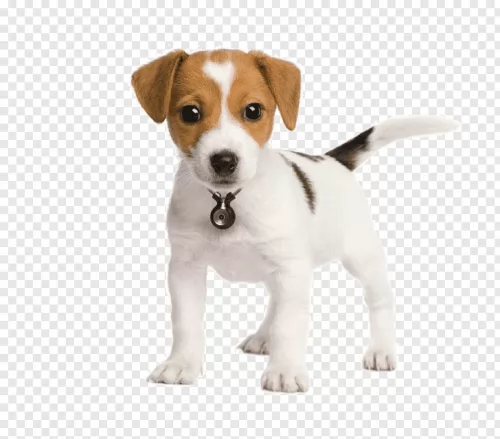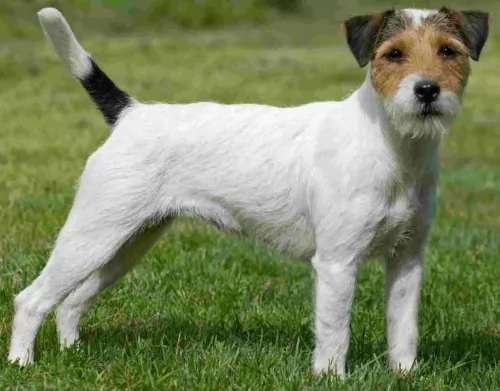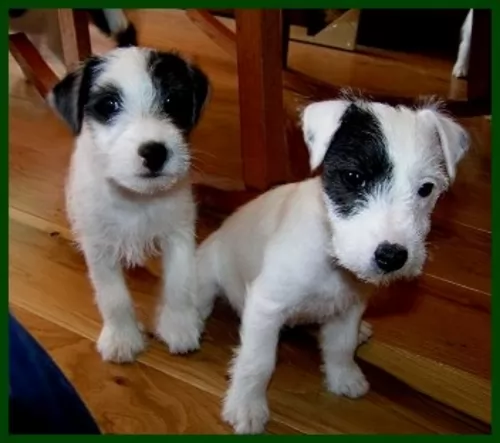 Petzlover
Petzlover Boston Terrier is originated from United States but Parson Russell Terrier is originated from United Kingdom. Boston Terrier may grow 7 cm / 3 inches higher than Parson Russell Terrier. Both Boston Terrier and Parson Russell Terrier are having almost same weight. Both Boston Terrier and Parson Russell Terrier has almost same life span. Both Boston Terrier and Parson Russell Terrier has almost same litter size. Boston Terrier requires Low Maintenance. But Parson Russell Terrier requires Moderate Maintenance
Boston Terrier is originated from United States but Parson Russell Terrier is originated from United Kingdom. Boston Terrier may grow 7 cm / 3 inches higher than Parson Russell Terrier. Both Boston Terrier and Parson Russell Terrier are having almost same weight. Both Boston Terrier and Parson Russell Terrier has almost same life span. Both Boston Terrier and Parson Russell Terrier has almost same litter size. Boston Terrier requires Low Maintenance. But Parson Russell Terrier requires Moderate Maintenance
 Nicknamed the American Gentleman, the Boston Terrier is the result of crossing the British Bulldog with the white English Terrier. At first the Boston Terrier was bred to be a fighting dog, but since then, undesirable characteristics have been bred out and today the Boston Terrier is regarded as an indoor dog that doesn’t tolerate extreme weather conditions.
Nicknamed the American Gentleman, the Boston Terrier is the result of crossing the British Bulldog with the white English Terrier. At first the Boston Terrier was bred to be a fighting dog, but since then, undesirable characteristics have been bred out and today the Boston Terrier is regarded as an indoor dog that doesn’t tolerate extreme weather conditions.
The breed emerged in the 1870s when Robert Hooper from Boston bought a dog thought to be a mix of a Terrier and Bull type lineage. A specialist breed club was formed in 1891 and in 1979 the commonwealth of Massachusetts named the Boston Terrier the Official State Dog. By the 20th century, the breed’s color and patterns were standard and an essential feature.
 The Parson Russell Terrier hails from England and is a small to medium sized dog dating back to the 18th century. It is believed that Reverend John ‘Jack’ Russell was the developer of this dog. The Parson has always been involved with England’s sport of foxhunting.
The Parson Russell Terrier hails from England and is a small to medium sized dog dating back to the 18th century. It is believed that Reverend John ‘Jack’ Russell was the developer of this dog. The Parson has always been involved with England’s sport of foxhunting.
They’re spritely and quick and have been able to keep up on a hunt and take on a fox in its lair. The dog was first recognized in 1990 in the United Kingdom as the Parson Jack Russell Terrier and in America in 1997.
All the top kennel clubs recognize this dog as the Parson Jack Russell Terrier.
 The Boston Terrier is a lively, strong-willed breed with an alert expression and fairly large, erect ears. He is a small to medium sized dog and his square muzzle puts him among the Bull breeds.
The dog is compact in build and varies quite significantly in size. Weight with the dog is actually divided into 3 categories – lightweight (under 6.8kg), middleweight (up to 9kg) and the heavyweights being between 9.1kg and up to 11.4kg. The Boston has a short head and a naturally short, low-set tail. The coat is short and smooth, and the colour can be brindle with white markings, brown and white or black and white.
The Boston Terrier is a lively, strong-willed breed with an alert expression and fairly large, erect ears. He is a small to medium sized dog and his square muzzle puts him among the Bull breeds.
The dog is compact in build and varies quite significantly in size. Weight with the dog is actually divided into 3 categories – lightweight (under 6.8kg), middleweight (up to 9kg) and the heavyweights being between 9.1kg and up to 11.4kg. The Boston has a short head and a naturally short, low-set tail. The coat is short and smooth, and the colour can be brindle with white markings, brown and white or black and white.
It’s the energetic liveliness of the Boston Terrier that makes him such a lovable and popular pet. He has an affectionate, gentle nature that makes him a fantastic family pet and he gets on well with children and pets in the home. He can adapt to city or country life. One or two interesting facts of this breed are -
with his short nose, he is prone to drool and snore
he is prone to corneal ulcers because of his large, somewhat protruding eyes
with a small pelvis, the females often battle with the birthing process and may require a caesarean section.
 The Parson Jack Russell is essentially a white dog with black and tan or orange-fawn patches. He can be tri-colored too. The coat is either smooth, rough or broken.
The Parson Jack Russell is essentially a white dog with black and tan or orange-fawn patches. He can be tri-colored too. The coat is either smooth, rough or broken.
He stands at between 33–36cm tall at the withers and weighs between 5 and 8kg. Unlike the Jack Russell, the Parson Russell Terrier has longer legs. He has some longer hair on the head, legs and body. The ears are floppy wit the tip pointed forward. The tail has always been docked but when left long it it held high, slightly curving over the back.
Feisty, brave, cheeky and alert, the Parson Russell Terrier is an energetic dog who gets on well with children as he knows that this is essentially where his games come from.
He is bold and clever and you’ll be able to have him trained and socialized without any trouble. These little dogs are full of life and they are protective of their humans and their property, making excellent watchdogs.
 The Boston Terrier is such a sweet little dog, but you can’t really say what your puppy’s personality will be as personality varies quite a bit between individual Boston’s. Remember that just like with a human child, your puppy will turn out with characteristics that can be attributed to the way he was raised. The Boston just loves his human family and he wants to be part of all your activities, even though he may gravitate towards one favorite family member.
The Boston Terrier is such a sweet little dog, but you can’t really say what your puppy’s personality will be as personality varies quite a bit between individual Boston’s. Remember that just like with a human child, your puppy will turn out with characteristics that can be attributed to the way he was raised. The Boston just loves his human family and he wants to be part of all your activities, even though he may gravitate towards one favorite family member.
Your Boston is a Terrier and that means he is full of life and will require being exercised by you. He can’t just be left outdoors day after day because this is one particular breed that can’t adapt to changing weather conditions. He likes being inside where the temperature is more even. Look after your Boston, because if you do, you’ll be rewarded by having one of the best friends you’ve ever had.
 In general the Parson is a friendly,loving dog, fairly small but packed full of feisty personality.
In general the Parson is a friendly,loving dog, fairly small but packed full of feisty personality.
They make excellent pets for the entire family. He is an intelligent dog, but typical of most terriers he can be stubborn, but this can easily be fixed with training and socialization. With good care, he’ll make you a wonderful little pet and companion.
 Boston Terriers are generally healthy, feisty little dogs but it is always wise to know that you may well come across some health conditions that can affect your pet.
Boston Terriers are generally healthy, feisty little dogs but it is always wise to know that you may well come across some health conditions that can affect your pet.
Your Boston may well have to contend with cataracts, and in the dog world, this isn’t only an ailment for old dogs. Juvenile cataracts can develop in young puppies already. Cherry Eye is another eye problem with a prolapse of the gland of the third eyelid. It is also an eye disease than can be found in young dog of less than a year old.
Boston Terriers actually have a fairly high incidence of deafness in one or both ears. White Bostons tend to produce more puppies with deafness.
The Boston Terrier is a brachycephalic dog and therefore more predisposed to Brachyphalic Syndrome where the dog battles to breathe because of too much soft tissue which forms in the airways.
To avoid many dog diseases with your Boston, buy your puppy from a reputable dog breeder who screens dogs used in a breeding program as this prevents puppies inheriting genetic disorders.
 Your Parson Jack Russell can live to be between 12 and 15 years but nonetheless he does have some breed-related health issues to watch for.
Your Parson Jack Russell can live to be between 12 and 15 years but nonetheless he does have some breed-related health issues to watch for.
Eye conditions which can affect this dog include primary lens luxation,cataracts, corneal dystrophy and progressive retinal atrophy. With cataracts the lens of the eye develops a cloudy look resulting in poorer vision and sometimes blindness. Cataract surgery is available for dogs.
Your Parson Jack Russel should be lean and muscular and always full of energy. Avoid feeding him unhealthy treats which can lead to obesity and other health problems.
All kinds of parasites such as ticks, fleas and worms can invade your dog’s body. Roundworms, hookworms and tapeworms can cause havoc with their health and some of these parasites can even be transmitted to humans. It’s why it is important to get your puppy to the vet to be de-wormed and to get his first injections.
A liver disorder known as portosystemic shunt can mean that some of the blood supply doesn’t get to the liver and it doesn’t function properly. This will mean the liver can’t remove toxins from the bloodstream effectively.
 The Boston Terrier is a lively dog, and even though he doesn't have any extreme exercise requirements, he will still require you exercising him by taking him on walks, or having ball games with him. As an essentially indoor dog, he can even enjoy some quieter indoor games.
The Boston Terrier is a lively dog, and even though he doesn't have any extreme exercise requirements, he will still require you exercising him by taking him on walks, or having ball games with him. As an essentially indoor dog, he can even enjoy some quieter indoor games.
You’ll be able to gauge how much your pet requires in terms of high quality food, but by the time he is an adult, he usually has one or two bowls of food a day. Size and age play an important role in determining his eating habits. Home made foods made up of rice, meat and vegetables are always welcome for your pet and these can be added into his top quality commercially produced dog food. For a healthy dog who is free of skin problems include some raw meat in the diet from time to time. Always make sure that there is a bowl of fresh, cool water which is available 24/7.
With his short coat, the Boston Terrier isn’t a heavy shedder and is low maintenance in terms of keeping his coat groomed. Brush him at least twice a week to remove loose hairs and to also prevent flea and tick infestations. Brush his teeth 2 or 3 times a week to ensure no plaque build-up which can damage the teeth. Never use human toothpaste, but invest in special toothpaste and -brush for dogs. If he is essentially an indoor dog, you may have to get the vet to trim his nails too.
 The Parson Russell Terrier has different coat types – the smooth and rough and both will require regular brushing. Rough coats will require plucking or clipping to avoid matting.
The Parson Russell Terrier has different coat types – the smooth and rough and both will require regular brushing. Rough coats will require plucking or clipping to avoid matting.
Check his eyes and ears regularly. Look inside his ears for excess wax and dirt which could lead to an ear infection. His nails should also be trimmed.
The best thing you can do for your Parson Russell Terrier if you don’t want your pet producing puppies is to have it spayed or neutered. Spaying for females or neutering for males decreases the likelihood of certain types of cancers too so it can be beneficial.
Diet is hugely important for a Parson Russell Terrier and the food you decide for him can impact his health. Many time those ‘treats’ you feed your pet do nothing more but give him a stomach ache.
It's tempting to pop chocolates, popcorn, nuts and ice cream into your pets mouth when he is so adorable but in the long run it is shortening his life. All he basically requires and needs is a simple, consistent diet of the top commercially manufactured foods mixed with some tasty home made food from time to time.
Boiled chicken, brown rice and vegetables such as sweet potatoes, carrots and spinach will do your pet wonders. Ensure he always has fresh, cool water available to him.